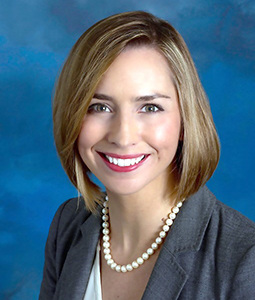Department of Psychology
Faculty and Staff Directory
Amanda J. Fairchild
| Title: | Professor Associate Department Chair |
| Department: | Psychology McCausland College of Arts and Sciences |
| Email: | afairchi@mailbox.sc.edu |
| Phone: | 803-777-4137 |
| Office: | Hamilton 348 |
| Resources: | Curriculum Vitae [pdf] |

********** Dr. Fairchild will be accepting students for the 2024-2025 academic year **********
Background
Dr. Fairchild joined the Department of Psychology in Fall 2008, after graduating from Arizona State University with a PhD in Quantitative Psychology. She is an APS Fellow and has been a Faculty Associate with the SmartState Center for Healthcare Quality in the Arnold School of Public Health since 2016. Dr. Fairchild is additionally an Associate Chair of the Department and the director of the Quantitative Ph.D. Concentration.
Research
Dr. Fairchild has centered her work on assessing and applying statistical techniques for prevention science and translating innovative methods for applied researchers to promote best practices. These efforts have encompassed methodological research in statistical mediation and moderation analyses, as well as psychometrics. Most recently, she has been investigating new methods for causal inference. In addition to her primary research in methodology, Dr. Fairchild collaborates routinely with several colleagues on substantive research projects. Her collaborative work covers a variety of domains including neurodevelopmental disorders, mental health, and health promotion.
Representative Publications
*indicates student co-author
*Yin, Y., Shi, D., & Fairchild, A.J. (2022). The Effect of Model Size on the Root Mean Square Error of Approximation (RMSEA): The Nonnormal Case. Structural Equation Modeling. In press.
Lee, H., Cashin, A., Lamb, S., Hopewell,S., Vansteelandt, S., VanderWeele, T.J.,MacKinnon, D.P., Mansell, G., Collins, G., Golub, R.M., McAuley, J.H., & the AGReMA Group. (2021). A Guideline for Reporting Mediation Analyses of Randomized Trials and Observational Studies. JAMA, 326, 1045-1056. (Member of the AGReMA Group).
Fairchild, A.J., Cai, C., *McDaniel, H., Shi, D., Gottschall, A., & Masyn, K. (2019). Evaluating a method to estimate mediation effects with discrete-time survival outcomes. Frontiers in Psychology: Quantitative Psychology & Measurement, 10, 740.
Fairchild, A.J. & *McDaniel, H.L. (2017). Best (but oft-forgotten) practices: Mediation analysis. American Journal of Clinical Nutrition, 105, 1259-1271.
*Patel, C.C., Fairchild, A.J. & Prinz, R.J. (2017). Potential mediators in parenting and family intervention: Quality of mediation analyses. Clinical Child & Family Psychology Review, 20, 127-45.
Fairchild, A.J., *Abara, W.E., Gottschall, A.C., Tein, J.Y., & Prinz, R.J. (2015). Improving our ability to evaluate underlying mechanisms of behavioral onset and other event occurrence outcomes: A discrete-time survival mediation model. Evaluation & the Health Professions, 38, 315-342.
Fairchild, A.J., & MacKinnon, D.P. (2014). Using mediation and moderation analyses to enhance prevention research. In Z. Sloboda & H. Petras (eds.), Advances in Prevention Science, Vol 1. Defining Prevention Science (pp. 537-555). New York, NY: Springer.
Enders, C.K., Fairchild, A.J. & MacKinnon, D.P. (2013). Using Bayesian parameter simulation to evaluate mediation effects with missing data. Multivariate Behavioral Research, 48 340-369.
Fairchild, A.J., & *McQuillin, S.D. (2010). Evaluating mediation and moderation effects in school psychology: A presentation of methods and review of current practice. Journal of School Psychology, 48, 53-84.
Fairchild, A.J., & MacKinnon, D.P. (2009). A general model for testing mediation and moderation effects. Prevention Science, 10, 87-99.
MacKinnon, D.P., Fairchild, A.J., & Fritz, M.S. (2007). Mediation analysis. Annual Review of Psychology, 58, 593-614.
Fairchild, A.J. & Finney, S.J. (2006). Investigating validity evidence for the experiences in Close Relationships-Revised Questionnaire. Educational & Psychological Measurement, 66, 1-20.